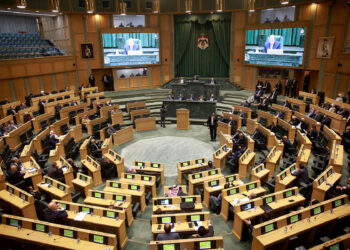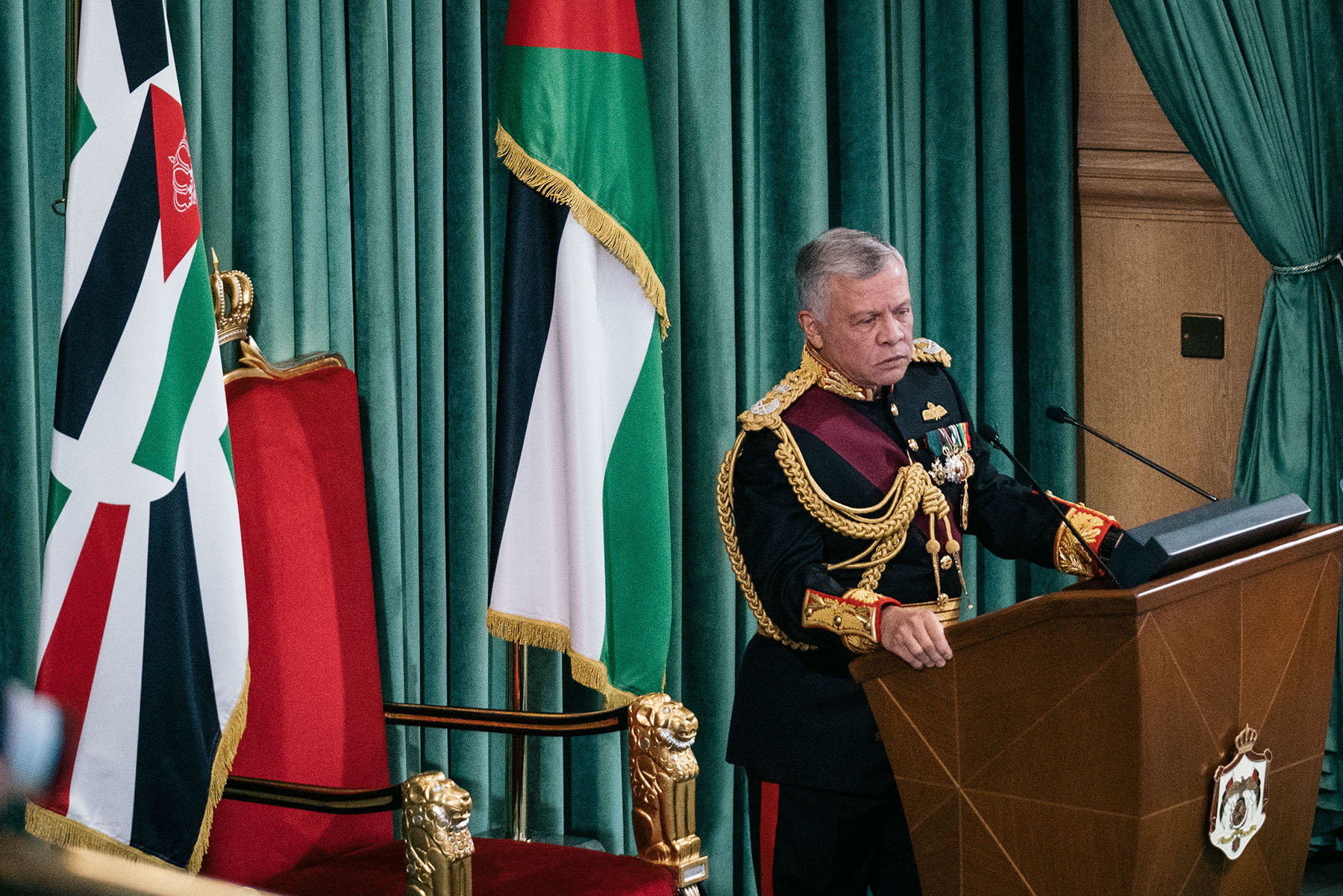*Ahmad Algohbary is a freelance Yemeni journalist who has reported on the Yemen war for international media since war broke out in 2015. His work has appeared in The Guardian and Al Jazeera English, among other outlets. As Co-Director of Photography, Aloghbary filmed the 2018 documentary “Yemen Skies of Terror,” which was nominated for Emmy and Sheffield Awards, and won an online journalism award. Algohbary has also launched a public funding campaign via his Twitter account to provide support for child victims of the war. He tweets at @AhmadAlgohbary.
The fragile, two-month truce in Yemen that was just extended for another two months has been welcomed by all parties in the country's grinding war. Although the truce, brokered by the United Nations, has largely held despite some breaches, it still faces major obstacles going forward, as talks to implement its key provisions remain deadlocked between the Saudi-led coalition and the Houthis. If the extended truce does not hold, the warring parties—but Saudi Arabia most of all, as the main architect of this war—will have missed the single best opportunity to finally end the conflict.
The initial truce, which came into effect on April 2, called for "a halt to all offensive ground, aerial and maritime military operations" in and outside Yemen and a freeze in the frontlines; the entry of 18 fuel ships into the port of Hodeidah in northern Yemen; and two commercial flights a week to Amman and Cairo from Sanaa International Airport which has been closed to all civilian air traffic as part of the crippling Saudi-led blockade of Yemen. The airport's closure has prevented supplies of life-saving medicines and other essential goods into the capital held by the Houthi-led government. As part of the truce, the U.N. envoy to Yemen, Hans Grundberg, invited the parties "to a meeting to agree on opening roads in Taiz," which has been besieged by the Houthis throughout the war, "and other governorates to facilitate the movement of civilian men, women and children." That meeting took place last week in Amman over three days of talks but ended without any agreement on lifting the Houthi siege of Taiz, Yemen's third-largest city.
Houthi representatives in Amman reportedly offered to open three roads into Taiz, in what the U.N. envoy called a "phased reopening." Yemen's Saudi-backed government rejected that offer, insisting instead on opening up all blocked roads, including the main eastern entry point to the city of Taiz. The Houthis refused, maintaining that the road, known as al-Hawban, is a frontline, and offered to reopen a different road into the northern part of the city.
If the extended truce does not hold, the warring parties—but Saudi Arabia most of all, as the main architect of this war—will have missed the single best opportunity to finally end Yemen's conflict.
- Ahmad Algohbary
These disagreements seem to stem from what it is implied but not stated in the truce, specifically that its terms were to be implemented in sequence, with the talks on lifting the blockade of Taiz coming after the entry of 18 fuel ships into Hodeidah and the resumption of two flights per week in and out of Sanaa. But those elements of the truce were held up in April and May by the Saudi-led coalition and its Yemeni partners, which is why the truce almost wasn't renewed this week.
The first flight from Sanaa didn't take off until May 16, more than six weeks into the two-month truce. Yemen's Saudi-backed government said it couldn't allow passengers on flights with passports issued by its rival Houthi-led government in Sanaa, as a matter of "legitimacy." Only after further U.N. diplomacy did the flights start—but initially just to Amman, followed by a single flight to Cairo on June 1, the first since 2016, one day before the truce was set to expire. The U.N. envoy, Grundberg, had to engage in more meetings to convince the Saudi-led coalition to allow the flights, even though they had already been agreed to per the terms of the truce.
With an estimated 32,000 Yemeni patients in critical need of urgent medical treatment abroad, the limited flights during the truce have devastated the families of the sick who were hoping finally for a way out. The Norwegian Refugee Council's acting country director in Yemen, Isaac Ooko, has called the airport's closure under the blockade "a hostage situation that has lasted for five years. Patients are trapped in Yemen, even when there is a route to save them."
For the fuel ships into the critical but severely blockaded port of Hodeidah that serves northern Yemen, not all of the 18 ships agreed on in the truce were ultimately allowed in, according to the U.N.'s own timeline of the truce. The ships that were cleared to enter the port were delayed off the coast of Yemen by the Saudi-led coalition—delays that result in large demurrage charges that are passed on to the Yemeni population, undercutting the impact of the blockade's ease, since the fuel that gets delivered is much more expensive. The Houthi-led government in Sanaa appears to think that this is still better than nothing, as the territories it controls, which are home to about 80 percent of Yemen's 31 million population, have suffered from an acute shortage and sometimes a total lack of fuel for the past two years.
The onus is on Saudi Arabia to end a war it launched in 2015 and can only wage with the support of its main Western enablers in the United States and the United Kingdom.
- Ahmad Algohbary
Nevertheless, as the first truce to hold so far in more than seven years of war, this still represents diplomatic progress. Diplomacy needs more time now, despite disappointments among Yemenis at the missed provisions of agreed-on flights and fuel ships since early April. The truce offers a long-overdue opportunity for all warring parties to make a face-saving exit from this disastrous war. But if it falls apart, it could be a recipe for further escalation, not a prelude to establishing a lasting peace. The current U.N.-led diplomacy looks less sincere if the Saudis do not honor the clear terms of the truce and allow the agreed number of civilian flights out of Sanaa and fuel ships into Hodeidah without any delay, and if the Houthis, in turn, do not end up lifting their blockade of Taiz.
The onus is on Saudi Arabia to end a war it launched in 2015 and can only wage with the support of its main Western enablers in the United States and the United Kingdom, which have been implicated in war crimes. Although not included in the truce agreement, a complete lift of the Saudi-led blockade of Yemen would clearly signal good faith in making peace, by allowing vital imports in and commercial flights out. Just as important for a genuine peace process is Yemen's Saudi-backed government paying the salaries of public sector employees working in areas under Houthi control.
These steps would strengthen the truce and make it more sustainable, laying the groundwork for a broader resolution to the war. It would make Saudi Arabia safer by ending Houthi drone and missile attacks over the border, and most importantly, it would save Yemeni lives, hundreds of thousands of which have been wasted by Riyadh's air war on its poor neighbor.
A rare chance for peace in Yemen is finally on the table. If it falls apart because the full terms of the truce aren't upheld, the Houthis will likely retaliate with renewed force, triggering another destructive cycle of Saudi reprisals. Despite the truce's extension, time is running out.































![Security forces loyal to the interim Syrian government stand guard at a checkpoint previously held by supporters of deposed president Bashar al-Assad, in the town of Hmeimim, in the coastal province of Latakia, on March 11, 2025. Syria's new authorities announced on March 10, the end of an operation against loyalists of deposed president Bashar al-Assad, after a war monitor reported more than 1,000 civilians killed in the worst violence since his overthrow. The Syrian Observatory for Human Rights said the overwhelming majority of the 1,068 civilians killed since March 6, were members of the Alawite minority who were executed by the security forces or allied groups. (Photo by OMAR HAJ KADOUR / AFP) / “The erroneous mention[s] appearing in the metadata of this photo by OMAR HAJ KADOUR has been modified in AFP systems in the following manner: [Hmeimim] instead of [Ayn Shiqaq]. Please immediately remove the erroneous mention[s] from all your online services and delete it (them) from your servers. If you have been authorized by AFP to distribute it (them) to third parties, please ensure that the same actions are carried out by them. Failure to promptly comply with these instructions will entail liability on your part for any continued or post notification usage. Therefore we thank you very much for all your attention and prompt action. We are sorry for the inconvenience this notification may cause and remain at your disposal for any further information you may require.”](https://dawnmena.org/wp-content/uploads/2025/04/syria-22039885951-360x180.jpg)






